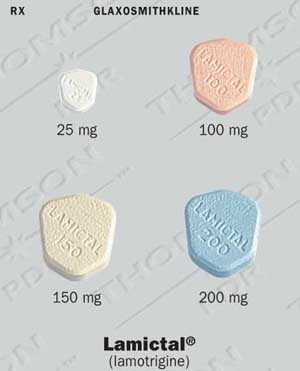Top Class Actions’s website and social media posts use affiliate links. If you make a purchase using such links, we may receive a commission, but it will not result in any additional charges to you. Please review our Affiliate Link Disclosure for more information.

Khalilah’s ordeal had started when she had been prescribed Lamictal to treat either her epileptic or emotional disorder, according to news reports. While she initially had no ill reactions to Lamictal, Khalilah did develop Lamictal SJS symptoms a month after starting this popular anti-seizure medicaiton in January 2013, when she awoke to blisters covering her body. Hours later, her skin reportedly turned black and was dying and melting off as if it were liquid in consistency.
Lamictal is a popular anticonvulsant medication that is prescribed to treat focal seizures, tonic-clonic seizures, and Lennox-Gastaut syndrome. It is manufactured and produced by GlaxoSmithKline, and earns the company millions every year in prescriptions. While many patients have reported finding success with Lamictal, others have complained of experiencing severe Lamictal side effects like Lamictal SJS. It is important to note that Lamictal is one of the most commonly associated with Stevens Johnson Syndrome and its more severe form Toxic Epidermal Necrolysis (TEN).
Luckily, Khalilah had been rushed to the hospital and then diagnosed with Lamictal SJS after several diagnostic tests. During her time at the hospital, doctors were required put her into a medically induced coma for over a month, which reportedly caused her to become so weak that she needed physical therapy to regain the strength and coordination to walk. When she woke up, Khalilah had lost most of her skin and had been initially devastated when she realized what had nearly happened.
As a graduate student aiming for a Master’s Degree in Health Promotion, she is well aware of the peril she had been in. According to on-staff physicians, Khalilah has been responding to the therapy well and is steadily making an overall recovery. Additionally, Khalilah’s attitude towards the situation has also been remarkable, choosing to use her Lamictal SJS experience to help others. During her time at the hospital, Khalilah’s mother had started a blog and website soon after she was diagnosed with Stevens Johnson Syndrome where she recorded her daughter’s ordeal as it occurred.
Khalilah has since taken over the blog and now reaches out to other patients who are either suffering or had previously suffered SJS or TEN. As mentioned before, Khalilah is very lucky in her ordeal as not many patients live to tell the tale or are too scarred from the experience to discuss it.
Overview of Stevens Johnson Syndrome Complications
Stevens Johnson Syndrome is an extreme allergic skin reaction typically caused by an adverse reaction to one or more medications. This condition is typically characterized by the infamous red or purple skin lesions that are left on the body, which then cause skin detach from the body. Stevens Johnson Syndrome can typically cover up to 30 percent of the body in skin lesions, along with lesions appearing on the mucous membranes of the body, and causing internal organ damage or blindness. Toxic Epidermal Necrolysis is essentially the same condition, but can cause up to 90 percent of skin consumption in lesions and is much more aggressive in progression. In both of these severe skin conditions, almost all patients are left with some sort of sight damage or skin scarring.
Due to the nature of SJS symptoms, patients often have to be treated in the burn unit of hospitals due to the common need of skin grafts. However, even when skin is peeling off the patient upon hospital arrival, doctors will often need several diagnostic tests to determine either SJS or TEN. This is because SJS is an extremely rare condition with only 300 cases diagnosed per year in the United States. For this reason, physicians seldom encounter SJS and often do not recognize the early signs before the later symptoms begin. Stevens Johnson Syndrome often occurs within the two to eight weeks of starting a medication, and will begin with flu-like symptoms.
As a result of the long term pain and suffering many patients experience because of this condition, many individual’s have filed SJS lawsuits against the drug manufacturers who allegedly failed to warn consumers about this rare and deadly disease.
Do YOU have a legal claim? Fill out the form on this page now for a free, immediate, and confidential case evaluation. The Stevens Johnson Syndrome attorneys who work with Top Class Actions will contact you if you qualify to let you know if an individual lawsuit or class action lawsuit is best for you. [In general, SJS lawsuits are filed individually by each plaintiff and are not class actions.] Hurry — statutes of limitations may apply.
ATTORNEY ADVERTISING
Top Class Actions is a Proud Member of the American Bar Association
LEGAL INFORMATION IS NOT LEGAL ADVICE
Top Class Actions Legal Statement
©2008 – 2024 Top Class Actions® LLC
Various Trademarks held by their respective owners
This website is not intended for viewing or usage by European Union citizens.
Get Help – It’s Free
Help for Victims of Stevens Johnson Syndrome
If you or a loved one were diagnosed with Stevens Johnson Syndrome (SJS) or toxic epidermal necrolysis (TEN) after taking a prescribed or over-the-counter medication, you may be eligible to take legal action against the drug’s manufacturer. Filing an SJS lawsuit or class action lawsuit may help you obtain compensation for medical bills, pain and suffering, and other damages. Obtain a free and confidential review of your case by filling out the form below.
An attorney will contact you if you qualify to discuss the details of your potential case at no charge to you.
Oops! We could not locate your form.












